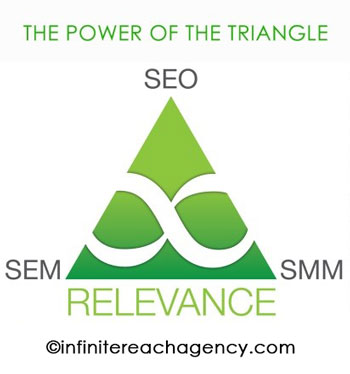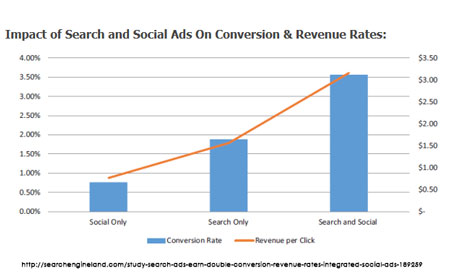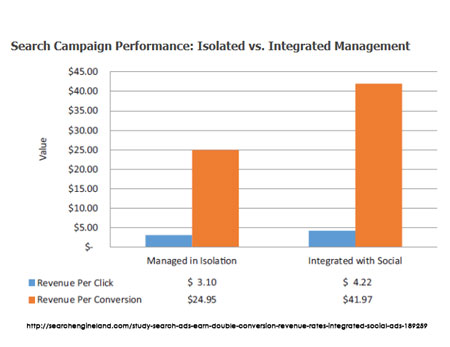First–don’t shoot me for saying this. Traditional advertising isn’t cutting it anymore. I remember back in the day when I worked as a sales rep for a local TV station in Alaska, KYES Channel 5. It was 1998 and the station owner, Jeremy Lansman, wanted me to start selling ad space on our website. I thought he was crazy. Who in their right mind was going to spend money on website advertising when I could sell them $8 rotators? Looking back I have to giggle. Kind of ironic considering now I’m an internet marketer, however, it took a lot of years before I admitted it—but he was and still is… well, brilliant.
Lansman is the kind of forward thinker that naturally sets himself apart from other people just by seeing into the future. He was the “Steve Jobs” of our station. He’s gifted and I’ve come to realize that having that kind of foresight comes with years of experience—and I am excited to say that I feel we as team are truly getting to that place.
While print, television, and radio advertising are still very relevant in some industries, online marketing has become a necessary addition to traditional marketing plans, especially for businesses to be found by their audience. Let’s face it, we’re more plugged in than ever! Thousands of people go to the web to search for goods and services rather than use a phone book (which, by the way, my mother-in-law will be the last person on earth to own one as she’s “not the techy type” –her words. True story.).
Just for the sake of online search alone–there were 2,954,252,063 Google searches already performed today–at the exact time I wrote this piece alone!
Further—most of them aren’t using a laptop or a PC. They’re on their smart phones searching in real time. For businesses today, the key to being found is no longer the Yellow Pages, but having a presence online and one that’s mobile responsive. Basically what that means is that the site is the same on web, tablet, or mobile, and when visited “responds” by changing itself appropriately for a quality end-user experience.
With this kind of importance—we take search a step further. Something that sets us apart from our competition is that at Infinite Reach Agency, we believe in the Power of the Triangle – using SEO, SEM and SMM. Partner that with fresh, relevant content in a well thought out, strategic manner will not only improve the online visibility of our clients—we help them dominate.
It’s all about your business being relevant to what your potential customers want and with the new Google Panda, Penguin, Hummingbird (and the rest of the Google zoo…) algorithm updates, relevancy is nearly at the top of the ranking list. Especially when we consider the recent partnership between Google and Twitter where a company’s tweets will now appear in online search engine results. First impressions matter–if you look like a dingle-berry on Twitter, you’ll definitely look like a dingle-berry on Google. Yep, this relevancy thing is super important. You’ll have to get this right.

Breaking it Down- SEARCH ENGINE OPTIMIZATION
Think of SEO as the foundation to your home. When you have the right keywords in place and all of your on-page SEO is set, all of the other efforts that you build on bring that house to life. You need that foundation all the time and on-going. You need to trust that foundation will be strong enough to hold the house in place if there’s an earthquake. Here’s an example:
At the rate that Google changes its algorithms your website needs to be constantly updated to accommodate them. Fresh content that is relevant to your audience, proper keyword usage, and knowledge of the latest Google updates are just some of the critical ingredients to SEO.
Here’s some stats to get your attention:
- 61% of Global Internet Users Research Products Online
- Google owns 67.5%of the search engine market share, Bing 18.4% and yahoo 10.3%.
- 60% of all organic clicks go to the TOP 3 organic search results.
- 70-80%of users ignore the paid ads on the results page, focusing on the organic results.
- 75%of users never scroll past the first page of search results.
What does this mean for your business? You’re familiar with the riddle–“If a tree falls in the woods and no one is there to hear it, did it make a sound?” Exactly my point. If your potential customers can’t find you through a search engine, they. are. NOT. going. to find you. A good SEO strategist is necessary so your website be visible to the people who are looking for your goods or services. They’ll concentrate on your foundation and also the framing as the rest of your house gets built. Such as off page SEO strategies by way of citations and NAP (name-address-phone listings) consistency, among others.
SOCIAL MEDIA MARKETING CAMPAIGNS
You’ve read the articles and know all the stats. Social media isn’t just for kids anymore. Platforms like Facebook, Google+, Instagram, Pinterest, LinkedIn and so many more are the medium for communicating with a wide number of people.
Here’s an example of power behind social media. Singer and performance artist Beyonce ignored traditional marketing methods (television, radio, print) and instead launched her new album on Instagram to her 8 million followers. She sold over 1 MILLION copies of the 14 song/17 video package in 5 days.
Not convinced yet? How about this…I’d even go so far as to say that the power of social media has changed the world.
We were there and witnessed the downfall of Gaddafi in Libya and how the rebels used Twitter. The country was locked down from communicating outside their borders and their regime controlled the media and messaging until this happened—the rebels, not having any internet used their flip phones (gasp!) to communicate out by text to family members who took their story to the web.
Hmmm.. But is Social Media Good for Business? If done right, YES!
The average American spends 37 minutes on social media a day. If businesses are going to reach potential clients, they are going to need to have a robust social media strategy as part of their overall online marketing plan. However, the key is to unlock the engagement.
You can post to social all day long, but that’s not going to bring any traction. I witness so-called marketers do it at the expense of their clients’ marketing dollars. They go in claiming to be an authority to help small business owners by taking the social tasks off their hands while at the same time doing their clients an injustice.
The results are…well there really ARE NO results. There’s no organic growth and a serious lack of engagement which equals no traction. It takes a strategic approach to break away from mediocrity and not simply spew junk content on their client’s social channels just to have something to post. Again.. back to the dingle-berry reference above.
Enter SEM—Search Engine Marketing
Yes, we love social media but where we make a difference is when we start with the foundation of SEO and build our social around the overall marketing strategy for our clients. We have a proven strategy that works; when a social plan is combined with a strategic search engine marketing campaign, the results are astounding!
In a study by Marin Software, they found that marketers who combine search engine campaigns with social media campaigns had nearly twice as many conversions and DOUBLED their revenue vs. using only social or search campaigns. According to the study, people who clicked on social AND search ads spent nearly twice as much as people who only clicked on social ads.


What does all of this mean for you and your business?
Implementing a strategic marketing plan that uses both SEM and SMM with a solid foundation of SEO is the much needed approach for being relevant in all aspects of your online presence. We’re here to help!
Our team at Infinite Reach Agency uses what we call the Power of the Triangle, to elevate our clients’ presence on the internet. We are committed to bringing you the traffic you need to be found, be successful and grow.
To find out how we can help your business, please contact us at 602-535-2188 to schedule a no obligation consultation. Seriously, we love to meet people and learn about your business!
Or.. just click here to send us an email!


















